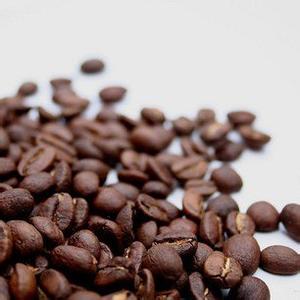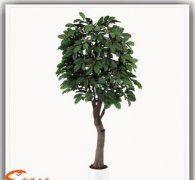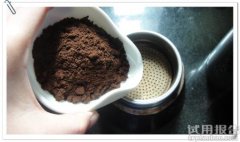A brief introduction to the taste of the breed of coffee produced in the sweet and lovely Yega Fischer Manor.

At first, Yejassefi's coffee trees were planted by European monks, and later by farmers or cooperatives. Yega Xuefei is actually constructed by the surrounding coffee communities or cooperatives, including: Hafusha, Hama, Biloya.
Yega Xuefei uses the oldest sun treatment method, but in 1972, Ethiopia introduced Central and South American water washing technology to improve its quality, which made its jasmine and citrus fragrance clearer and more refined, and became one of the best beans in the world. Superb washing technology played an important role. After the 1970s, it was basically washed by water. However, in the past two years, Yega Snow has been out of order. Frequently launch amazing sun beans! There is a strict standard for collecting red fruits (as a result of coffee trees). Before exposure to coffee fruits, unripe green fruits or defective fruits are removed manually, and damaged or moldy fruits are removed during the sun drying process. after two weeks, the sugar and essence of the flesh and essence seep into the coffee beans, the water content is reduced to 12%, and then scrape the hardened pulp, pectin layer and pods with a planer. Take out the coffee beans and test the density and color of the beans. After eliminating the defective beans, finally, the workers picked out the defective beans with the naked eye and screened them layer by layer, resulting in the cleanliness and vulgarity of Yejia snow caffeine sun-dried beans and a strong attractive fruit aroma.
Although the Ethiopian Yirgacheffe coffee is petite, it is gentle and delicate and sweet. As the hometown of coffee, thousands of years of planting history and processing tradition in Ethiopia have created high-quality washed Arabica beans. Light baking has unique sweet aromas of lemon, flowers and honey, soft acidity and citrus flavors, fresh and bright on the palate. No milk or sugar, let the rich texture and unique soft flower scent brush your taste buds, leaving an endless aftertaste.
Yega Xuefei is a small town, 700-2100 meters above sea level, synonymous with Ethiopian boutique coffee. It has been a wetland since ancient times. The ancient saying "Yirga" means "settle down" and "Cheffe" means "wetland". The mode of production and flavor of coffee here is so outstanding that Ethiopian coffee farmers compete to be proud of the flavor of their coffee, making it the most famous coffee producing area in Africa.
These mountain villages are foggy, like spring all year round, with a gentle breeze in summer, cool but not hot, rain but not damp, and no cold damage in winter, giving birth to a unique regional flavor of citrus and flowers. Coffee trees, mostly planted in farmers' backyards or mixed with other crops in the fields, were planted by European monks (a bit like Belgian monks growing wheat to brew beer) and later transferred to farmers or co-operatives. Yejia Chuefei is actually constructed by surrounding coffee communities or cooperatives, including Edido Idido, Hafusa Harfusa, Hama Hama and Biloya near Fog Valley Misty valley, all washed with water, but there are also a small number of off-product beans engraved with sun to enhance the charming fruit aroma and mellow thickness. These mountain villages are foggy, like spring all year round, with a gentle breeze in summer, cool but not hot, rain but not damp, and no cold damage in winter, giving birth to a unique regional flavor of citrus and flowers. Coffee trees are mostly planted in farmers' own backyard or mixed with other crops in the field, the yield per household is not much, it is a typical rural coffee. Yega Xuefei won the prize beans almost from the above-mentioned coffee villages and communities.
Important Notice :
前街咖啡 FrontStreet Coffee has moved to new addredd:
FrontStreet Coffee Address: 315,Donghua East Road,GuangZhou
Tel:020 38364473
- Prev

Brief introduction of Coffee Flavor Flavor Coffee Flavor Coffee Flavor Grinding scale varieties
Yega Chuefei exudes an extremely complex aroma and shows an extremely excellent taste that is difficult to describe. In general, the dry aroma of Yega Chuefei is full of fruit, with strong aromas of dried fruit, strawberry, mango and apricot jam. Wet fragrance is like sweet syrup, like sticky apricot juice, wrapped in plain honey or chocolate. The entrance is not strong and the alcohol is thick.
- Next

A brief introduction to the flavor and taste characteristics of Xidama Coffee Manor in Xidama Coffee Manor
Flavor: berries, tropical fruits, fermented wine, jujube, tea, milk chocolate. The cocoa aroma of medium body, with a hint of spices and tea in the end, is complex and long-lasting, tastes cleaner after cooling, and the balance is more prominent. Cabedo is a small coffee cooperative in a small town in the Dala producing area of Sidamo Province, where every small coffee farmer owns the planting.
Related
- Does Rose Summer choose Blue, Green or Red? Detailed explanation of Rose Summer Coffee plots and Classification in Panamanian Jade Manor
- What is the difference between the origin, producing area, processing plant, cooperative and manor of coffee beans?
- How fine does the espresso powder fit? how to grind the espresso?
- Sca coffee roasting degree color card coffee roasting degree 8 roasting color values what do you mean?
- The practice of lattes: how to make lattes at home
- Introduction to Indonesian Fine Coffee beans-- Java Coffee producing area of Indonesian Arabica Coffee
- How much will the flavor of light and medium roasted rose summer be expressed? What baking level is rose summer suitable for?
- Introduction to the characteristics of washing, sun-drying or wet-planing coffee commonly used in Mantenin, Indonesia
- Price characteristics of Arabica Coffee Bean Starbucks introduction to Manning Coffee Bean Taste producing area Variety Manor
- What is the authentic Yega flavor? What are the flavor characteristics of the really excellent Yejasuffi coffee beans?

